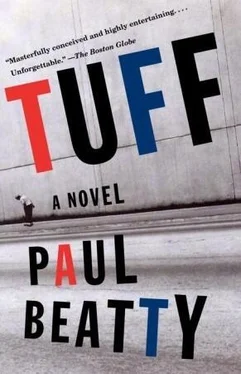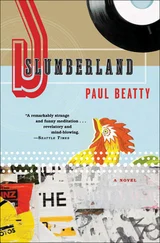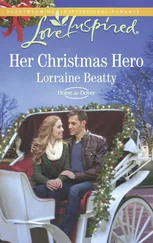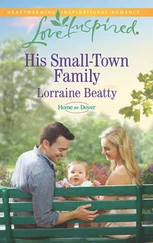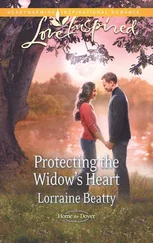“Why?”
“Because they knew that if Tuffy had said it, then he’d really fucked Carter’s mother.”
“Oh, shit.”
“ ‘Oh, shit’ is right. A nigger who honest as Tuffy just said he fucked your mother in front of your boys? You gots to fight. Tuffy should’ve just let Carter hit him, he don’t weigh but a hundred twenty pounds. But Tuff play for keeps. Nigger hit Carter so hard — you ever see a matador stab a bull? Bull staggers for a quick second like, ‘Goddamn, this punk motherfucker stabbed me,’ then just fall to his knees. That’s how hard Tuffy hit Carter. Nigger dropped to his knees olé like a motherfucker. His nasal passages is all permanently crushed. The poor guy got to keep his mouth open to breathe. You give that nigger a lollipop and he’ll die.”
Fariq’s gaze shifted and Spencer looked over his shoulder to see Winston and Yolanda standing arm in arm behind him. Spencer now understood why little boys ran to Tuff in the streets, tugging on his shirt, begging to be “put down” on some invisible ghetto roster of the terminally bad. He knew why his hubcaps were still on his car after that initial visit to Winston’s apartment. Winston Foshay — a living African-American folk hero whose mythos lay somewhere between that of the angelic John Henry and the criminally insane Stagger Lee. Spencer had his newspaper story.
Winston paused at the auditorium’s entrance. The stragglers hurried by, and he saw very few neighborhood faces. Whatever their ethnicity, these were people who only came uptown for the meager portions of soul food at Sylvia’s Restaurant, or to hear a career Negro such as his father pontificate on the challenges faced by black Americans and those enlightened few genuinely sympathetic to the cause. Each loyalist mention of his father’s name from a patron’s lips was preceded by a slew of adjectives that convinced Winston that if he ever wanted to get to know his father, he’d have to read his books, because the dynamic, insightful, devoted Clifford Foshay was a man he didn’t know.
“Tuff, you coming, yo?” asked Fariq. “Popduke be dropping bombs.”
“No, y’all go ahead.”
Yolanda and Fariq eagerly sought out seats in the small but crowded auditorium. Spotting Spencer about to settle into a front-row seat, Fariq called out, “Hey, Jewboy! Wait the fuck up! Save me a seat, can’t you see I’m crippled?” Yolanda shoved Fariq ahead of her. “Do you have to say ‘Jewboy’?”
“You sensitive to the word ‘Jewboy’?”
“No, I’m just tired of hearing you say it.”
“What else is there?”
“I thought you were a follower of the Nation? What about ‘Hebe,’ ‘kike,’ ‘hymie,’ ‘Yid.’ Anything but ‘Jewboy’ all the damn time!”
“ ‘Yid,’ ” Fariq said thoughtfully, smacking his tongue as if he were tasting a fine wine. “I like that one.”
Winston stood just inside the exit. On stage, Clifford’s band was in the middle of their preperformance primping. Sugarshack tuned his saxophone with puffs of sound, peering down the bell and then shaking the horn every few notes, hoping to dislodge some invisible clog. Gusto sat behind a small drum kit practicing his licks and his distorted drum-solo faces. Duke adjusted and readjusted the congas propped between his legs. Winston recalled how he used to drive Duke crazy by asking him to explain the difference between congas and bongos. Dawoud rummaged through his duffel bag of percussion instruments, his choices for the evening’s entertainment seemingly based on nonmusical attributes such as blatant Africanness and the dexterity required to play them.
Pointing Jordy’s finger for him, Winston followed the nervous pacing of his father. “That’s your grandfather, Jordy. He’s an asshole.” Clifford Foshay had changed into his poetry garb. The black fakir was resplendent in a Bengal tiger — patterned djellaba, topped off with an intricately woven macramé kufi, accessorized with wooden beads and yellowed lion’s teeth. Unintroduced, Clifford strode across the rostrum, carefully set his watch on the lectern and produced a shotgun, which he fired into the air, silencing the crowd. “That’s for Huey.” Blam! “That’s for Fred Hampton.” He opened the barrel and inserted two more cartridges into the breech. Blam! “That’s for raping my great-grandma.” Blam! “And that’s one to grow on.” A sleet of particleboard and ceiling plaster began to fall. The audience leaned forward in their seats.
When Winston was younger and forced to attend his father’s readings, Clifford’s ostentatious militancy embarrassed him. He would return home obsessed with one question: what would happen if his dad turned white overnight? One day his father was a panelist on a Sunday-afternoon television news forum. The guests, no matter their political bent, argued, threatened, and insulted one another. Winston realized that every guest reminded him of his father and that if his dad had been born white he would be the same person, bellicose and belligerent, spewing his rhetoric from overstuffed recliners and television-studio swivel chairs instead of prison cots and bar stools. When his father called him later that day asking if he’d seen him on television, Winston said yes, then asked his father why, if he talked so much about the glories of Africa and the repressions of America, he didn’t drop his slave name for an African one. Clifford replied, “Because then you can’t cash the checks.”
After invoking the requisite Yoruba spirits, Clifford was finally ready to read. There was a cannonade of shotgun fire, and Winston turned to leave. There was no purpose in his staying; he knew the program by heart. Poems about Clifford’s expatriation to Cuba: repetitive paeans layered with images of mangos, rusty automobiles, sugarcane, and raven-haired beauties who like to fuck until the roosters crow. To break the revolutionary reveille there would be some poems about basketball, drums, and of course John Coltrane. The freedom suite would be followed by intermittent tales of how Clifford, drunk on Cuban rum and missing his mama’s cooking, made a pontoon out of coconuts and fishnet, waded into the waters of Matanzas Bay, and extradited himself to Florida. For an encore Clifford would read an ode dedicated to Winston and his dead sister, Brenda. The poem would rumble incessantly onward, like the Iliad read aloud by a summer-school teacher on a gorgeous August afternoon. The first canto was the story of Clifford sending cross-country for Winston and Brenda when Huey P. Newton died tragically in the streets of Oakland, California. It would be read with dramatic caesuras inserted, not between musical phrases, but between poignant images, for maximum pathos. After a three-day bus ride, Winston and his sister arrived the day of the funeral. Winston, lacking a pair of clean underwear, was forced to attend the burial wearing a pair of his sister’s panties. How he cried — not because the snake head of black-American rebellion had been severed from its body, but because his undergarment was thin, pink, and had “Tuesday” handwritten just under the waistband.
Canto 2 retold in quatrains how Clifford discovered his daughter was dead when the amount of the court-ordered alimony payments that followed him through four address changes had been halved. The third canto was a recounting of young Winston’s African-American-warrior training. His thirteenth birthday present the very same twelve-gauge shotgun balanced on Clifford’s right hip. The hunting trips took place in the swampy reeds of Wards Island, where shotgun fire scattered homeless men like park pigeons. Winston was made to fetch the kill, mostly buckshot-shredded possums and cats.
Читать дальше
